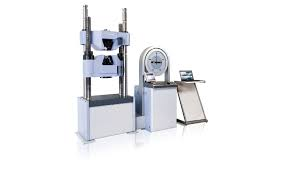Most Common Mold Materials

Today injection molding has become one of the most popular production processes for molding automotive parts. Moreover, automotive mold is an extremely important part of the automobile industry.
In fact, these molds not only use thermoplastics but also make use of metals as well as several other materials to mold according to the needs of automotive parts.
Basically, automotive injection molding has the most important part in the automotive industry. The main reason is, in this industry consistency, quality, and safety are all of the utmost importance.
Furthermore, in this highly advanced technological era, experts can also use a computer to make sure the precision in carrying producing an auto mold.
What is plastic injection molding?
Essentially, plastic injection molding is a special process to create a huge variety of identical plastic items and parts. However, the process was invented in the earliest of 19th century but still an ideal way to produce complex parts.
What is a mold in manufacturing?
In fact, molding is a particular manufacturing process in which manufacturers can get special parts by shaping a liquid or malleable raw material by using a fixed frame. This fixed frame is called a matrix or a mold.
Actually, it is a hollow cavity receptacle. Further, it is made of specific metal in which several liquid materials are poured to get identical parts such as;
- plastic
- ceramic
- metal
- glass, etc.
Moreover, by using injection molding, manufacturers can easily keep expenses under control. Basically, this process works by using custom-made molds of specific shapes. The automotive molds are greatly helpful to produce automotive parts.
Actually, there are a wide variety of auto parts that are produced through injection molding such as;
- pads and cushions,
- backlighting controls and buttons,
- and acrylic lenses and many, many more.
Nowadays plastic molded parts are greatly popular across the globe because of their ideal benefits.
Read the following benefits that automotive manufacturers can gain by having a car made with injection-molded parts.
What are the 5 amazing benefits of automotive molds?
- They can easily reduce the overall weight of automobile vehicles.
- There is great flexibility in the material and colors
- The plastic molded car parts have high strength.
- All the automotive parts have high accuracy.
- The manufacturers get the capability to add numerous details to automotive parts.
How much does it cost to mold plastic?
Basically, a manufacturer may have to pay different prices according to the needs of the project. However, a small single cavity plastic injection mold generally costs between $1,000 and $5,000.
Generally, you will have to pay $80,000 or more for a complex or larger automotive mold or any other mold type. Moreover, the average cost of a regular mold is almost $12,000.
What material is used to make molds?
Essentially, most mold makers utilize natural or manmade rubber. It is just because of their ideal flexibility as well as the ability to produce parts with exceptional details.
Furthermore, they also make use of rigid materials like gypsum plasters in order to produce molds. However, they generally utilize;
- natural latex
- polyurethane
- epoxy
- and silicone.
What is the best material for making a mold?
Usually, mold makers use polyester resins and polyurethane to produce molds for molding plastic or other different types of materials. Furthermore, among all types of materials, silicone rubber is actually one of the best materials.
In fact, these types of molds are perfect for molding almost one hundred parts. But if you want to cast just 10-20 parts then polyurethane mold rubber will be ideal because it is a less expensive material.
What is a 3-plate mold?
Basically, a 3-plate mold is helpful to use in the condition when part of the runner system is on a different plane to the injection location.
Moreover, the runner system for a three-plate mold easily sits on a second parting plane that is actually parallel to the main parting plane.
In this way, the second parting plane enables the sprue and runners to be ejected when the automotive mold is opened.
Further, in a three-plate mold, the runners will be ejected individually to the different cavities.
What are the 3 ideal features of three-plate molds?
Let's check out the 3 ideal features of three-plate molds!
- There are low chances to break down as compared to a hot-runner mold
- They are less expensive to build than a hot-runner mold
- There is no more chance to degrade the thermally sensitive materials.
What can I use to make a mold for fiberglass?
The most common materials that you can use are:
- gelcoat
- iso tooling resin (polyester resin)
- fiberglass mat or fiberglass cloth.
Furthermore, when you start to make a carbon fiber mold, you will actually use;
- carbon fiber
- epoxy surface coat
- as well as an epoxy material.
How do you make a perfect mold molding material?
In fact, it is the perfect process for making molds from anything. Furthermore, simply mix the resin with water and sink the final object into this material.
Let get them dry. Once dry, you can easily remove the object and use the perfect cast in order to fill the mold.
Can I use polymer clay in a silicone mold?
Basically, silicone molds are ideal to use when you work with polymer clay. Moreover, they are flexible as well as very easy to use.
Actually, you can also produce molds from plaster, silicone, or a variety of other materials.
Is 3D printing cheaper than molding?
In fact, the technique of injection molding is low in cost in comparison to 3D printing. But it is true only when you have to produce more than 100 parts.
On the other hand, the total cost per unit by using 3D printing stays relatively unchanged.
Further, the price for injection molding parts becomes ideally better the more pieces you manufacture with your automotive mold.
Will 3D printing replace injection molding?
It is actually just a rumor because 3D Printing never replaces injection molding. Basically, injection molding needs the use of some special machines to mold parts.
Moreover, the machines of injection molding can ideally produce objects faster, more efficiently. As well, in several cases, injection-molded parts have better dimensional accuracy as compared to 3D printers.

What are the advantages of injection molding using automotive molds?
Here are some ideal benefits of injection molding using automotive molds:
- You can get the ability to consistently produce identical automotive parts (crucial in the automotive industry)
- You can use a wide range of materials to produce automotive parts
- Injection molding provides you ideal surface finish with high precision
- There is a wide range of color selections for your automobile parts.





